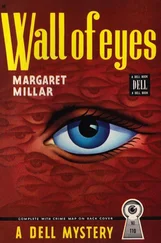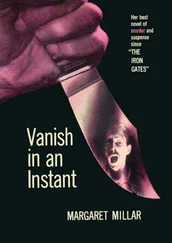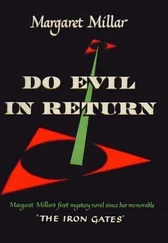“So far we have no evidence to show how much profit was involved. The five hundred dollars the pawnbroker paid Cully King is only part of what King received or hoped to receive. More, probably much more is involved. According to Tyler Pherson, her husband, the green leather case contained heirloom jewelry bequeathed to his wife by her mother. The green case has not been found, perhaps never will be. Cully King might have thrown it overboard in a moment of panic after Mrs. Pherson’s death at the same time as he threw her other possessions overboard.
“Rhetorical claptrap? No, indeed. This is evidence that will be presented to you from the stand by Harry Arnold, who witnessed the damning scene.”
During the pause that followed this announcement, a long, loud sigh of disbelief crossed the room. It was impossible to tell where it came from, perhaps the counsel’s table or the court clerk’s or even the first row of spectators. But the judge strongly suspected it had come from Donnelly.
He turned his attention to Charles Donnelly. Here was a man who’d puzzled him from the time they first met. A queer duck , the judge thought, and glanced at the wall clock, then at his watch, and found a discrepancy of two minutes. He chose to believe the wall clock, which was two minutes later.
He said, “Have you almost finished, Mr. Owen?”
“I have finished, Your Honor.”
“Good. Court will recess for fifteen minutes. Jurors are admonished not to discuss the case with anyone else or among themselves.”
He leaned over and spoke to the court reporter in a whisper: “Did you hear me say the word ‘good,’ Mildred?”
“I wasn’t sure, sir. I thought you might be just clearing your throat.”
“Of course, I was just clearing my throat.”
Before removing the paper from the stenotype machine, Mildred deleted the word ‘good.’ She and the judge had had a long and close working relationship. Although she sometimes referred to him privately as Georgy Porgy, she called him sir to his face and had a genuine respect for his ability and common sense.
He should have remarried years ago, she thought, folding the long ribbon of stenotype paper over and over into a figure eight.
Eva Foster, the court clerk, noted the time of recess in her book. She had witnessed the whispered conference between the judge and Mildred and Mildred’s subsequent act of deletion.
After the jurors and spectators had left, she accosted Mildred at the door.
“You shouldn’t have done that,” she said.
Mildred widened her eyes in an attempt to look surprised. “Done what?”
“Erased.”
“I was merely correcting a mistake.”
“Oh, bull,” Eva said. “The way you kowtow to that man disgusts me.”
“You disgust much too easily, dear. It’s hard on your arteries.”
“My arteries?”
“Disgust constricts the arteries and leads to fibrosis of the cerebellum and other complications I can’t think of at the moment.”
“You can’t think of them because they don’t exist. You’re making fun of me.”
“Have to,” Mildred said cheerfully. “I got sick of waiting for you to do it yourself.”
Eva walked away, not angry so much as disappointed that Mildred persisted in underestimating her own role as a woman, downgrading the importance of the female in today’s society.
Eva Foster had a pair of full, perfectly formed breasts, defiantly unrestrained. Everything else about her was long and thin and straight, her hair, her legs, her neck, her nose, her mouth, even her thought processes. Her mind could go from A to Z without a moment’s hesitation or the slightest acknowledgment that there was anything in between.
Nobody would have suspected what a wild fantasy life she led and what divergent figures appeared in it. There were clues, however: a certain expression on her face in unguarded moments; a moony smile now and then; a wardrobe that consumed most of her salary.
Halfway down the hall to the filing room she met Donnelly. He didn’t speak as they passed, and there wasn’t the slightest glint of recognition in his eyes. She wondered how he would react if she told him about the dream she’d had the previous night: They were in a railway station, and Donnelly was on the train as it began to move. She ran alongside it, and he reached down and swooped her up in his arms and whisked her away with him.
She woke up happy, and this, more than the dream itself, enraged her. She wasn’t swoopable or whiskable, and Donnelly lived on another planet and was married to a wealthy socialite (though unhappily, of course: Court scuttlebutt always had the married men unhappy and on the brink of ditching their wives for the love of a steno or file clerk).
“Screw you,” Eva said under her breath. “You’re a nasty cold fish. Stay out of my railway station.”
The judge retired to his chambers and, as his doctor had instructed him to do, lay down on the brown leather couch. They had grown old together, couch and man. Both bore the scars of time, mysterious sags and bulges. One cushion of the couch was covered with scratches made by the paws of the little dachshund he used to bring to the office every day after his wife died.
When the dachshund was no longer able to jump up on the couch by herself, the judge lifted her up, and she would lie there all day with a break at noon, not caring very much where she was as long as it was with him.
One morning court was abruptly adjourned without explanation. No one knew why until Mildred saw the judge carrying the little dead dog out to the parking lot, wrapped in one of his sweaters.
Neither his wife nor the dachshund was ever replaced.
The judge’s doctor had given him dire warnings and explicit instructions. During every recess and at lunchtime he was to lie down and think of nothing at all. He was to imagine a blackboard with words written on it in chalk and an eraser moving back and forth and up and down until all the words had disappeared. But the judge had found that as soon as the words were gone they were replaced by pictures.
This morning it was the picture of a young woman who had flung her two children off the bridge and been successfully defended by a court-appointed lawyer. A year or so after the trial she gave birth to another unwanted child, which she tried to flush down the toilet. The subsequent flooding led to her quick arrest. Much to nobody’s surprise, she was found guilty and sent to Corona, where, the judge hoped, part of her rehabilitation would include birth control information.
The eraser moved back and forth across the blackboard and the young woman’s picture disappeared and the judge slept.
Recess stretched from fifteen to twenty-four minutes. Chronic tardiness on the part of a judge with an already overloaded court calendar was inexcusable, in Eva Foster’s opinion, and would not happen if a woman were sitting on the bench.
After the bailiff had buzzed for the judge, and while the court was awaiting his reentry, Eva stopped at the stenotype machine to talk to Mildred Noon.
“You and I should be running this courtroom,” she said. “And why aren’t we?”
“For one thing, we’re not lawyers.”
“We could be. We could attend night classes right here in town.”
“Not me. That’s the only time I get to spend with my husband.”
“Don’t you want to make something of yourself?”
“I thought I was already something.”
“I mean, a real something something.”
“I’m afraid I’ll just have to settle for an ordinary something.”
“Are you content to let men rule the world?”
“Well, I don’t have time to do it,” Mildred said cheerfully. “Now, get off this kick and go back to your place. The judge’s door is opening.”
Читать дальше
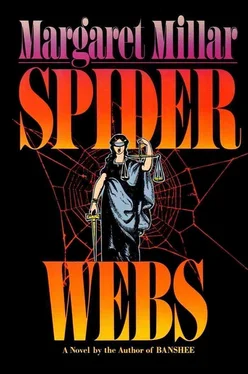



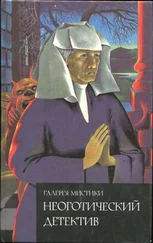
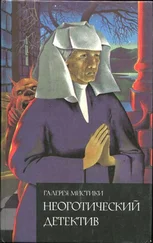

![Маргарет Миллар - Rose's Last Summer [= The Lively Corpse]](/books/384369/margaret-millar-rose-s-last-summer-the-lively-c-thumb.webp)
